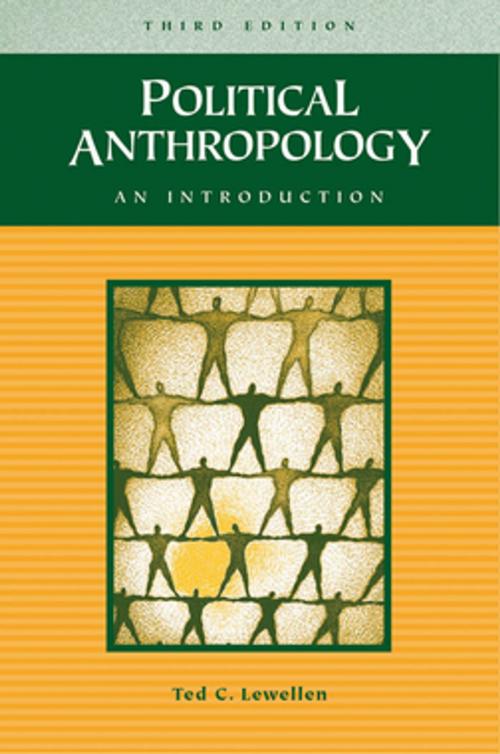Political Anthropology: An Introduction, 3rd Edition
Nonfiction, Social & Cultural Studies, Social Science, Human Geography, Anthropology| Author: | Ted C. Lewellen | ISBN: | 9780313058677 |
| Publisher: | ABC-CLIO | Publication: | November 30, 2003 |
| Imprint: | Praeger | Language: | English |
| Author: | Ted C. Lewellen |
| ISBN: | 9780313058677 |
| Publisher: | ABC-CLIO |
| Publication: | November 30, 2003 |
| Imprint: | Praeger |
| Language: | English |
In the foreword to the first edition, renowned anthropologist Victor Turner wrote that this book was a succinct and lucid account of the sporadic growth of political anthropology over the past four decades . . . the introduction we have all been waiting for. Unique in its field, this book offers a comprehensive overview of political anthropology, including its history, its major research findings, and its theoretical concerns both past and present. The third edition has been significantly updated and expanded, with extensive changes in many chapters, two new chapters, a new Preface that replaces the Introduction of the first two editions, an updated Glossary and Suggested Readings list, and an expanded Bibliography.
In a clearly written style, this introduction also provides the background necessary for further study. The new chapters cover such topics as the politics of identity, and the transition from modernism to postmodernism. As with the earlier editions, this third edition of what has become a classic in the discipline still serves as a basic text and structure for a full course.
In the foreword to the first edition, renowned anthropologist Victor Turner wrote that this book was a succinct and lucid account of the sporadic growth of political anthropology over the past four decades . . . the introduction we have all been waiting for. Unique in its field, this book offers a comprehensive overview of political anthropology, including its history, its major research findings, and its theoretical concerns both past and present. The third edition has been significantly updated and expanded, with extensive changes in many chapters, two new chapters, a new Preface that replaces the Introduction of the first two editions, an updated Glossary and Suggested Readings list, and an expanded Bibliography.
In a clearly written style, this introduction also provides the background necessary for further study. The new chapters cover such topics as the politics of identity, and the transition from modernism to postmodernism. As with the earlier editions, this third edition of what has become a classic in the discipline still serves as a basic text and structure for a full course.















![Cover of the book American Myths, Legends, and Tall Tales: An Encyclopedia of American Folklore [3 volumes] by Ted C. Lewellen](https://www.kuoky.com/images/2016/august/300x300/9781610695688-wHqk_300x.jpg)